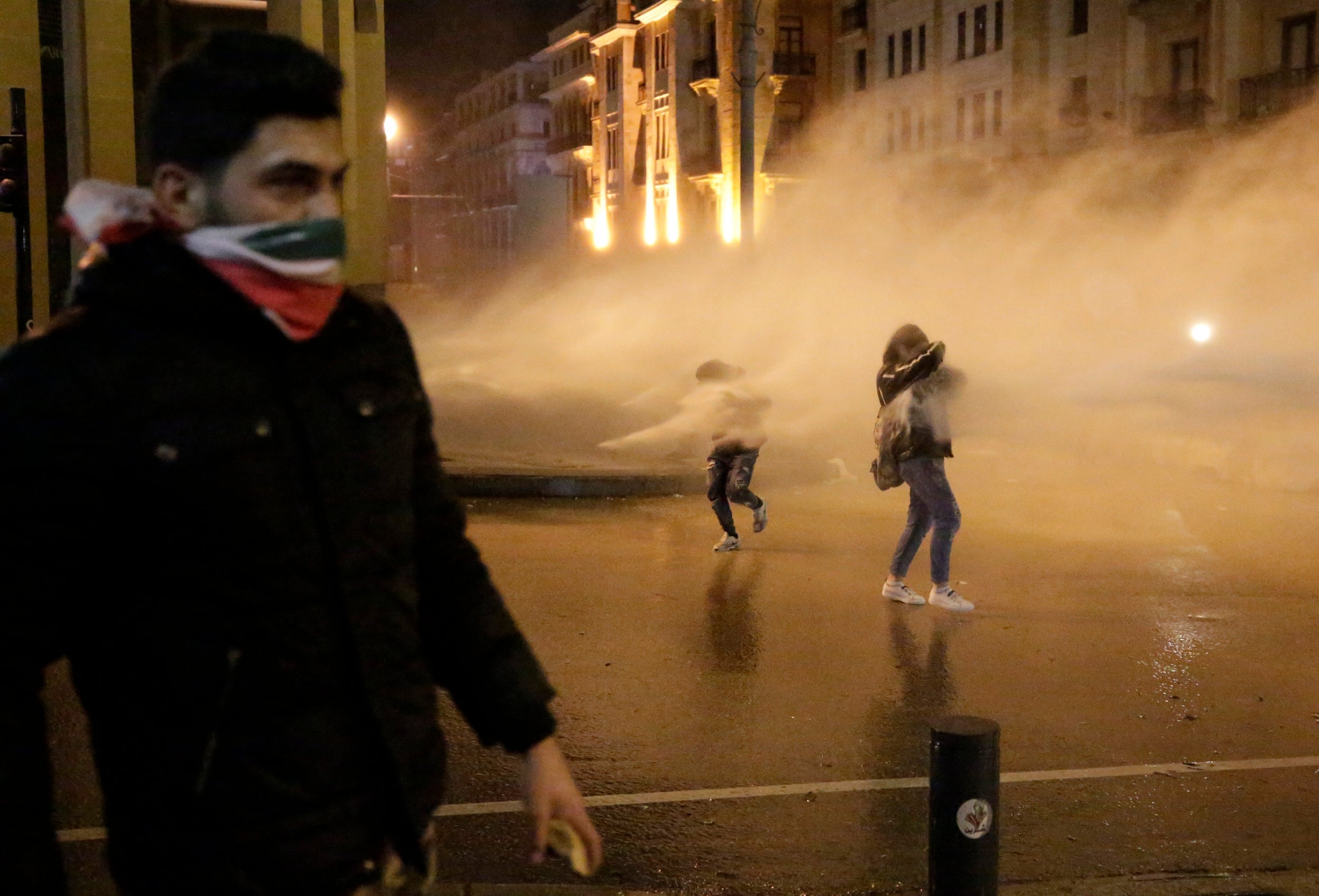‘They are mocking us’: Lebanese protesters reject new government as more of the same
New faces are unlikely to quell protests calling for wholesale change in Lebanon, writes Richard Hall

Lebanon has formed a new government following months of deadlock sparked by mass protests against the country’s ruling elite and its worst economic crisis in decades.
Hassan Diab, the prime minister, said his new cabinet would “strive to do everything required to meet all the protesters’ demands” when announcing his line up on Tuesday evening.
Mr Diab, a 61-year-old former electrical engineering professor, described his government as a “rescue team” made up of experts that would pull the country through its current difficulties.
The new government was pulled together by the Lebanese group Hezbollah and its allies, who make up the largest bloc in parliament, nearly three months after the former prime minister Saad Hariri resigned in the face of nationwide protests.
But just hours after the new government was announced, protesters were back on the streets outside of parliament in the capital Beirut.
“They are mocking us. This new government is made from one colour. Nothing has changed and nothing will change,” said Nour, a teacher from Beirut who gave only her first name, at a demonstration against the new cabinet on Tuesday evening.
“They just want us to be desperate and for us to settle for this new government but it’s not right. We are calling for a new country,” she added.
Hundreds gathered for the protest following Mr Diab’s announcement. Small scale clashes broke out after midnight between protesters and police, who fired teargas and sound grenades to disperse the crowds. It came after huge protests over the weekend that saw more than 500 people injured on both sides.
Nationwide protests broke out three months ago in response to a new tax on the messaging service WhatsApp – a measure aimed at alleviating Lebanon’s financial woes.
The protests spiralled into a wider movement that aimed to overthrow the country’s entire political system and the parties who have held power since the end of the 1975-1990 civil war.
One of the key demands from protesters was the forming of a non-political, technocratic government that could see Lebanon through its current crisis.
Mr Diab claimed that “every minister in this government is a technocrat and functions away from political parties”.
But observers have noted that many of the supposedly independent experts have links to political parties, and the fact that they were all picked by one political bloc has led to accusations of it being a “one colour government”.
The cabinet’s make-up was decided by the Christian Free Patriotic Movement (FPM), led by the current president, Michel Aoun, and its parliamentary allies, of which the Iran-backed Hezbollah is one.
The party of the former Sunni prime minister, Mr Hariri, along with his allies the Progressive Socialist Party and the Lebanese Forces, will not be a part of the government – an oddity in Lebanon, where governments are usually formed by consensus among the country’s different sects.
“Ever since Mr Diab was nominated as prime minister, the writing was on the wall,” said Sami Atallah, executive director of the Lebanese Centre for Policy Studies in Beirut.
“The process of selecting the candidates, how the decisions were being made, all indicated that we were back to the same rules of engagement where the seats were being divided among the political parties. The essence of the game didn’t change. It’s old wine in a new bottle.”
Mr Atallah added that “nothing was fundamentally changing” in the way Lebanon has been governed for decades.
Mr Diab’s 20-member cabinet is made up of experts in their field. It includes a record six women, who hold the key ministries of defence, justice and labour.
At the cabinet’s first meeting on Wednesday, Lebanon’s president, Mr Aoun, told the ministers that they had a “delicate” mission ahead of them.
“It is necessary to work to tackle the economic situation, restore the confidence of the international community in Lebanese institutions and reassure the Lebanese about their future,” the president said.
Financial support from the international community is seen as crucial for helping the country drag itself out of its economic crisis.
Lebanon is one of the most indebted countries in the world, with a debt-to-GDP ratio of 152 per cent. In the 2016 budget, interest payments accounted for almost half of all government spending.
The economic crisis has deepened in recent weeks as banks have imposed informal capital controls, which have placed restrictions on how much money customers can withdraw. As the value of the Lebanese pound continues to slide, many people are seeing their savings disappear.
But many countries who have traditionally provided financial aid to Lebanon, especially in the Gulf, have grown increasingly concerned over Hezbollah’s rising influence in the country.
Mr Diab said on Tuesday that his first trip abroad would be to the Gulf region. With a “one colour government” that is heavily influenced by the Shia militant group, Lebanon may struggle to secure support there, and further afield in Washington, where the administration of Donald Trump has taken a much tougher approach to Hezbollah.
More immediately, however, it is unlikely that the new government will quell the protests that have gripped the country for the last three months.
“We saw the reaction on the street already. I think it might get even louder,” said Mr Atallah.
“It goes back to the same issue. The problem is much more structural. This is why the protests took place in the first place – they are protesting against the whole system of governance.”
Join our commenting forum
Join thought-provoking conversations, follow other Independent readers and see their replies
Comments